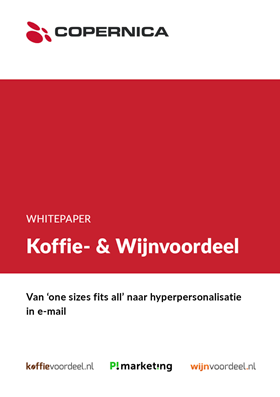Webhook security
To protect your data, we strongly recommend to use an HTTPS endpoint for your Webhook. This ensures that all calls from SMTPeter to your network are secure and cannot be intercepted by third parties. However, even if you use HTTPS, that does not prevent others from trying to send fake HTTP requests to your endpoint too. To overcome this, all our HTTP calls contain a couple of extra headers with your account ID and a digital signature.
Extra headers
All our outgoing HTTP requests contain a "Digest", "X-Copernica-ID" and a "Signature" header. These headers contain a hashed value of the message body, the identifier of your Copernica account and a digital signature. We strongly recommend that you check in your endpoint code if these headers are indeed set and that the values are correct. Incoming calls without these headers or incorrect headers should be ignored, since they could be sent by others with malicious intent.
The format of the headers is well-defined:
- The "Digest" header is in line with RFC 3230 and RFC 5843.
- The "Signature" header is defined in an IETF draft.
- The "X-Copernica-ID" header is set to "account-XXX" (where XXX is the ID of your account)
An example HTTP header could look like this:
POST /path/to/your/script HTTP/1.1
Host: yourserver.yourdomain.com
Date: Sun, 05 Jan 2014 21:31:40 GMT
X-Copernica-ID: account-1234
Digest: SHA-256=X48E9qOokqqrvdts8nOJRJN3OWDUoyWxBf7kbu9DBPE=
Content-Type: application/json
Content-Length: 328746
X-Nonce: fsd9f2
Signature: keyId="one._domainkey.copernica.com",algorithm="rsa-sha256",
headers="(request-target) Host Date Content-length Content-type
X-Copernica-ID Digest X-nonce"
signature="vSdrb+dS3EceC9bcwHSo4MlyKS59iFIrhgYkz8+oVLEEzmYZZvRs
8rgOp+63LEM3v+MFHB32NfpB2bEKBIvB1q52LaEUHFv120V01IL+TAD48XaERZF
ukWgHoBTLMhYS2Gb51gWxpeIq8knRmPnYePbF5MOkR0Zkly4zKH7s1dE="Signature & Private key
The signature is created using a private key that only we have access to, and can be verified with a public key. We've published our public key in DNS in the same way as we publish DKIM keys, see RFC 6367 for the [DKIM specification](./dkim "DKIM and Copernica). Note that the keys rotate once a month, so you should not use a hardcoded copy of our public key, but dynamically retrieve our key with a DNS query. The location of the key is included in our call and should always be a copernica.com subdomain.
The signature always covers the request target ("/path/to/your/script.php"), and the Host, Date, X-Copernica-ID and Digest headers. If the signature seems to be valid, but does not at least include these headers, the call did not come from us and should be ignored anyway.
Checklist
To check whether your endpoint was indeed called by us we recommend implementing the following checks:
- Check if the call came in through HTTPS (not HTTP)
- Check if there is a 'Date' header and if it is recent (to prevent replay attacks)
- Check if there is a 'Host' header, and it contains your hostname
- Check if there is a 'Digest' header, and if it matches the request body
- Check if there is a 'Signature' header, and if it contains the right values:
- It should at least cover the request-target, host, date, X-Copernica-ID and Digest headers
- The keyId must be set to a subdomain of copernica.com
- Fetch the public key from DNS and use it to verify the signature
Example
You can find an example implementation of correct message verification [here](https://github.com/CopernicaMarketingSoftware/webhook-security "Message verification on Copernica's GitHub).






